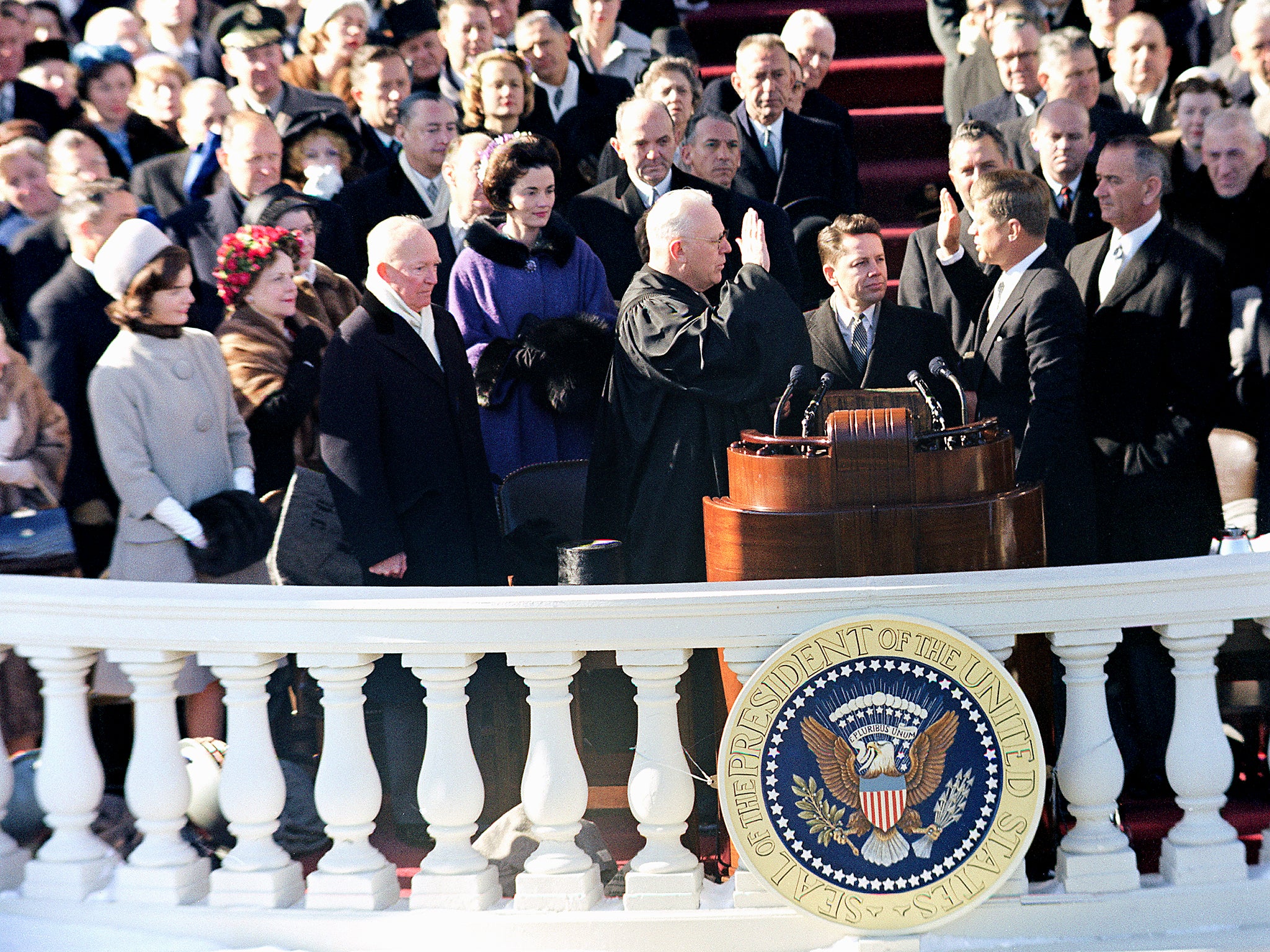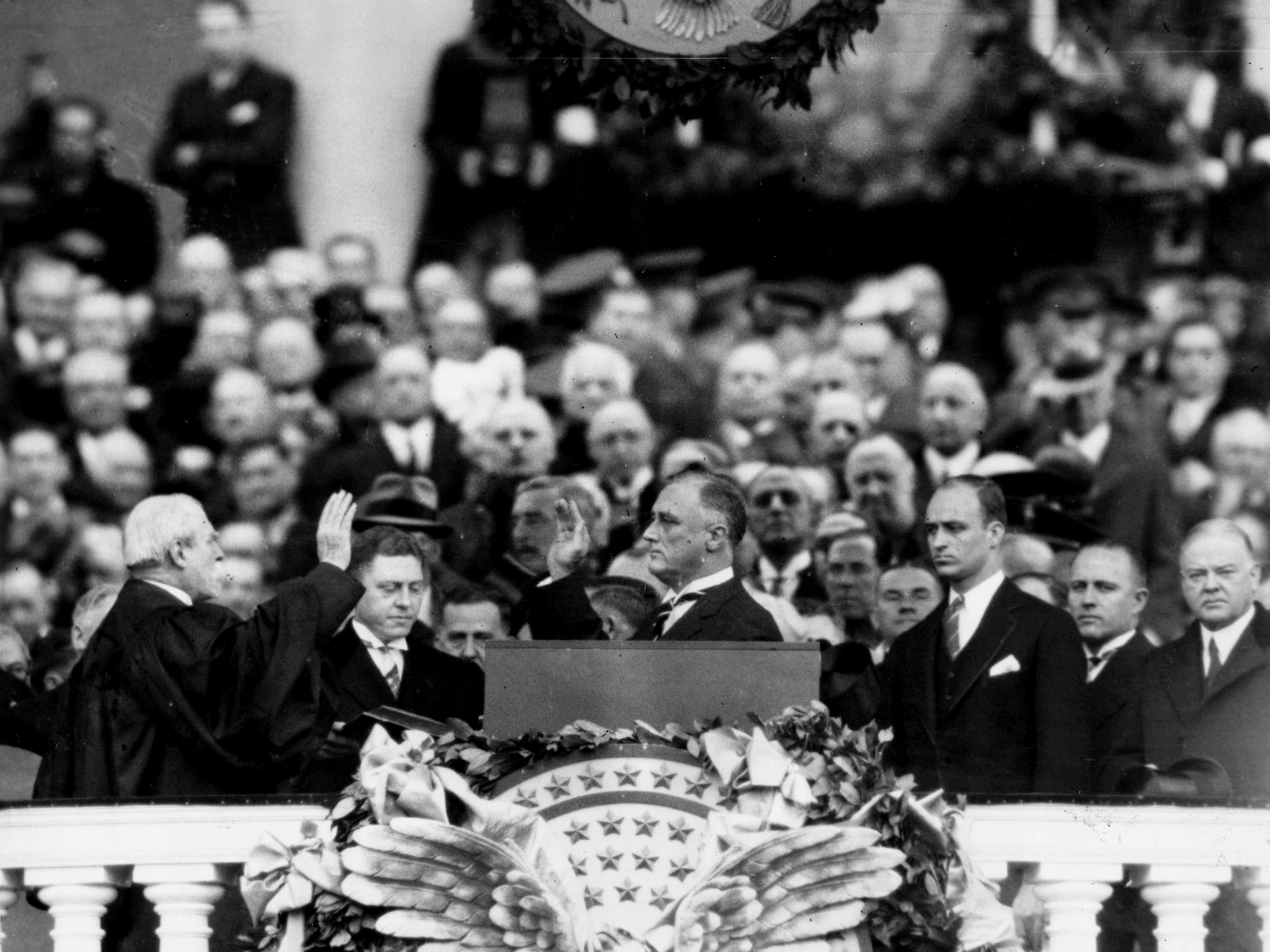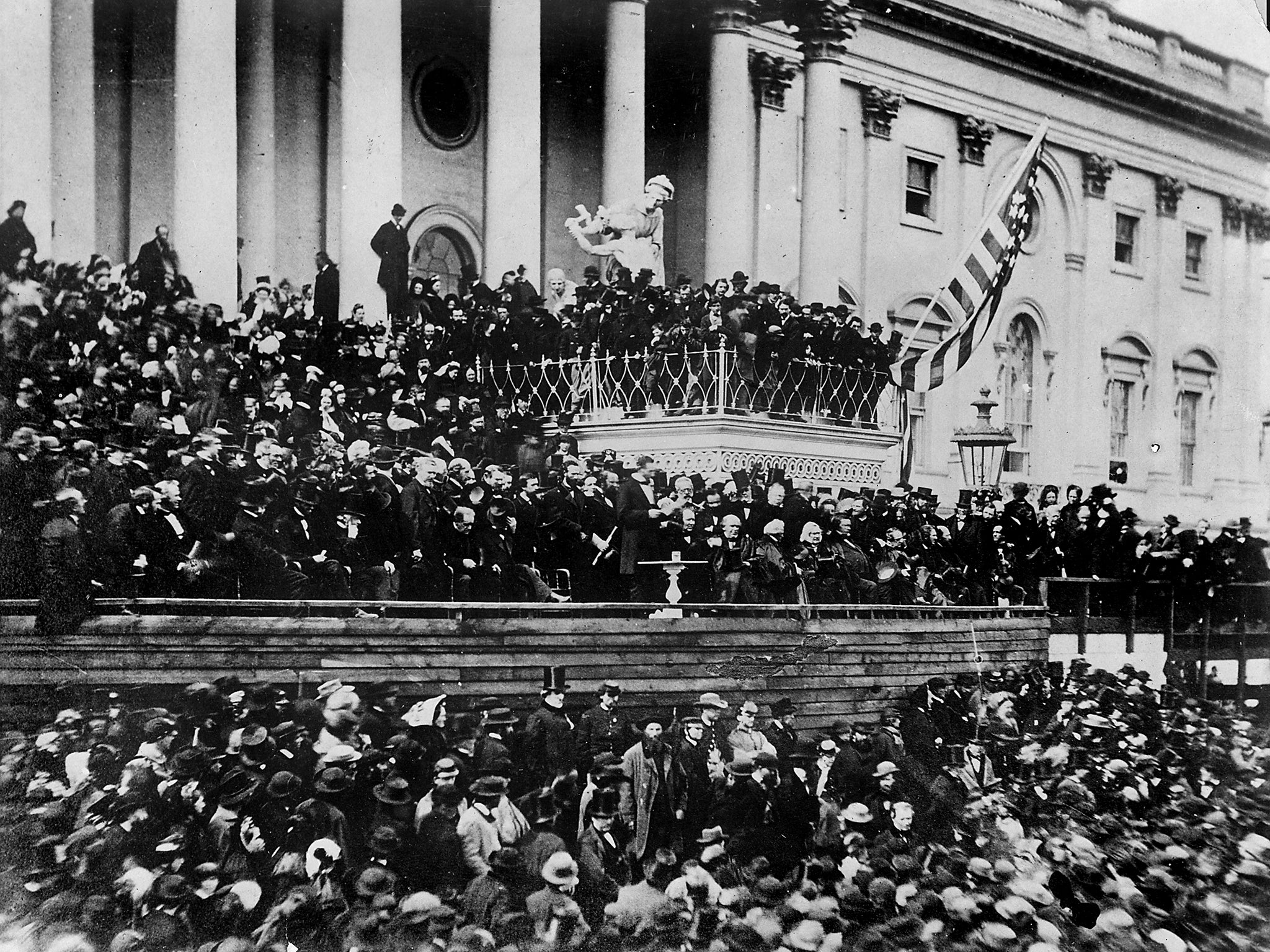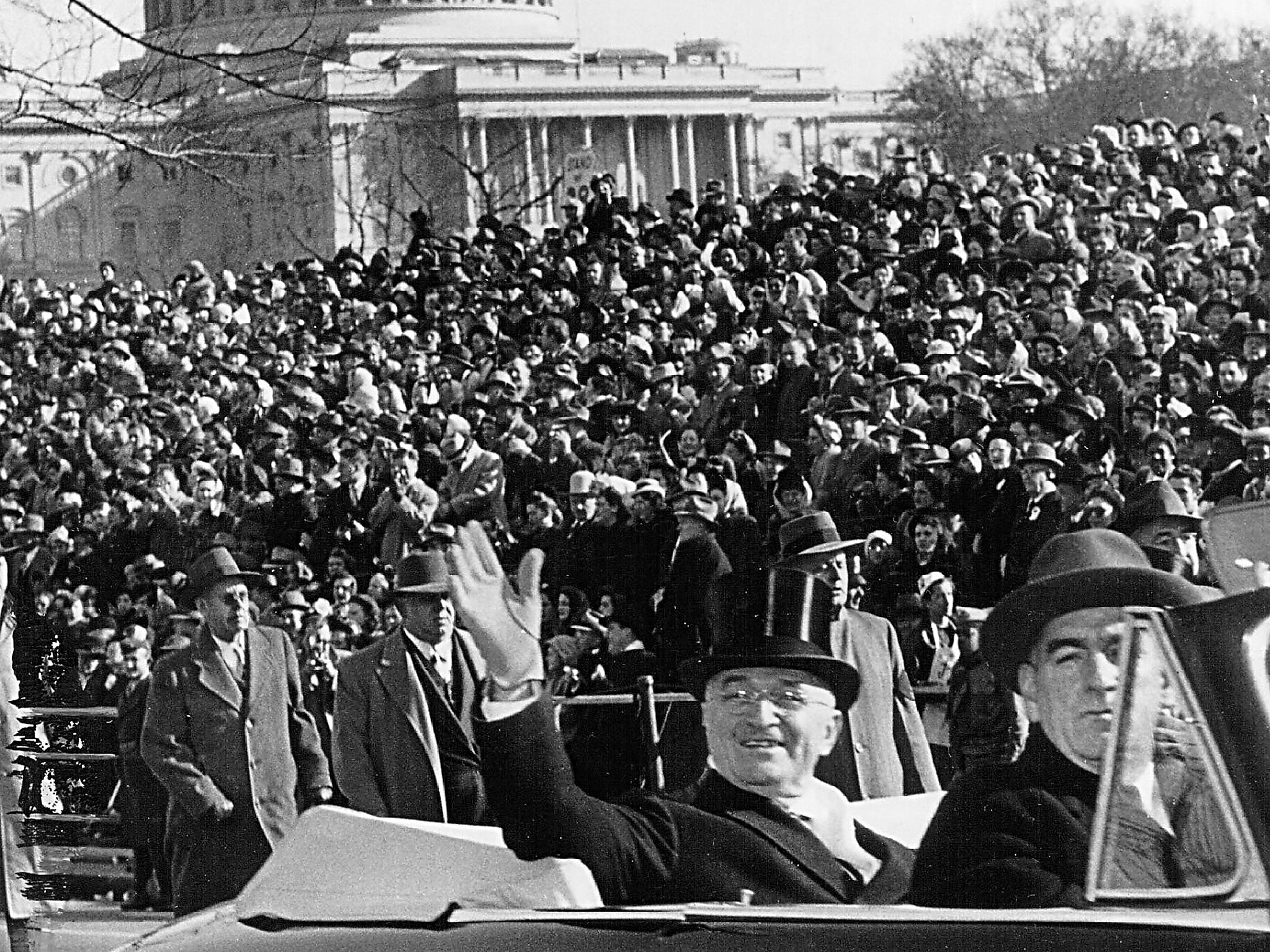No pressure, Donald: The best inauguration speeches, from Lincoln to JFK
Sean O’Grady on the finest pieces of rhetoric delivered by new presidents – and some of the worst

Like the Holy Bible and the plays of William Shakespeare, the US presidential inaugural address has yielded a surprising amount of incomprehensible dross as well as passages of timeless elegance and force – words and phrases that have become precious adornments to the English language. Some presidents, in other words, rise greatly to the occasion; others, not.
In the depths of the Depression, when Franklin Delano Roosevelt inherited a nation seared by bank failures and sudden mass unemployment on an unprecedented scale, and surrounded by a more dangerous and threatening world, he did his best to deliver – to use a favourite word of his latest successor – hope to a shaken people. In those days a new president took over in the Spring (it was FDR who thereafter moved the inauguration and transition of power to January for the sake of expedience). In that March of 1933, Adolf Hitler was soon to be appointed Chancellor of Germany. Faced with that and a stubborn collapse in business and consumer confidence, Roosevelt had this simple message, not often quoted within its full context:
“This is pre-eminently the time to speak the truth, the whole truth, frankly and boldly. Nor need we shrink from honestly facing conditions in our country today. This great nation will endure as it has endured, will revive and will prosper. So, first of all, let me assert my firm belief that the only thing we have to fear is fear itself – nameless, unreasoning, unjustified terror which paralyses needed efforts to convert retreat into advance. In every dark hour of our national life a leadership of frankness and vigour has met with that understanding and support of the people themselves which is essential to victory.”
Then, as now, America had seen mighty finance humbled, and Roosevelt’s biblical verdict on the false gods of money still resonates:
“The money changers have fled from their high seats in the temple of our civilisation. We may now restore that temple to the ancient truths. The measure of the restoration lies in the extent to which we apply social values more noble than mere monetary profit.”

He did fix the financial system, and set about ensuring that such a failure could not happen again – until the 1990s and 2000s, when much of his reform was undone.
Perhaps still more celebrated, even revered, was the address given by John F Kennedy on an exceptionally cold morning in 1961, his words a mixture of his own inspiration and the work of his principal speech writer Ted Sorensen. Once again they’re here quoted with a little more context:
“For man holds in his mortal hands the power to abolish all forms of human poverty and all forms of human life. And yet the same revolutionary beliefs for which our forebears fought are still at issue around the globe – the belief that the rights of man come not from the generosity of the state but from the hand of God.
“Let the word go forth from this time and place, to friend and foe alike, that the torch has been passed to a new generation of Americans – born in this century, tempered by war, disciplined by a hard and bitter peace, proud of our ancient heritage – and unwilling to witness or permit the slow undoing of those human rights to which this nation has always been committed, and to which we are committed today at home and around the world.”
“Let every nation know, whether it wishes us well or ill, that we shall pay any price, bear any burden, meet any hardship, support any friend, oppose any foe to assure the survival and the success of liberty.”
And of course:
“In the long history of the world, only a few generations have been granted the role of defending freedom in its hour of maximum danger. I do not shrink from this responsibility – I welcome it. I do not believe that any of us would exchange places with any other people or any other generation. The energy, the faith, the devotion which we bring to this endeavour will light our country and all who serve it – and the glow from that fire can truly light the world.
“And so, my fellow Americans: ask not what your country can do for you – ask what you can do for your country.
“My fellow citizens of the world: ask not what America will do for you, but what together we can do for the freedom of man.”
Sometimes an equally fine orator, such as Barack Obama, is not similarly endowed with historic material, and just has to make the best of his lines – “We gather because we have chosen hope over fear, unity of purpose over conflict and discord” – maybe owed too much to the campaign trail. Other times a skilled speechmaker, such as former actor Ronald Reagan, can transform a bar room quip into a distillation of a political philosophy: “In this present crisis, government is not the solution to our problem; government is the problem.”

America’s existential crisis came a century and half ago. On the brink of the imminent destruction of the Union in 1861, Abraham Lincoln made this reasoned plea to the secessionists in the South (words which possess an unexpected relevance for post-Brexit Britain):
“Physically speaking, we cannot separate. We cannot remove our respective sections from each other nor build an impassable wall between them. A husband and wife may be divorced and go out of the presence and beyond the reach of each other, but the different parts of our country cannot do this. They cannot but remain face to face, and intercourse, either amicable or hostile, must continue between them … Can aliens make treaties easier than friends can make laws? Can treaties be more faithfully enforced between aliens than laws can among friends?”
Today too, when Donald Trump dismisses Nato as “obsolete” it is worth recalling the crystalline clarity in the remarks of President Harry S Truman in the year of its, and his, inauguration: 1949:
“The primary purpose of these agreements is to provide unmistakable proof of the joint determination of the free countries to resist armed attack from any quarter. Every country participating in these arrangements must contribute all it can to the common defence.
“If we can make it sufficiently clear, in advance, that any armed attack affecting our national security would be met with overwhelming force, the armed attack might never occur.
“I hope soon to send to the Senate a treaty respecting the North Atlantic security plan.”

Still, in truth there is an embarrassing stock of inconsequential dross in the 57 presidential inaugural addresses delivered by the 44 presidents of the United States (actually, it’s 43 – Grover Cleveland served non-consecutive terms and gets counted twice). Who, for example, could say which of the variety of brilliant, inspiring, stupid, corrupt, greedy and ordinary men to have occupied the Oval Office came up with these?
“Our eyes never will be blind to a developing menace, our ears never deaf to the call of civilization.”
“In the Department of Agriculture the use of scientific experiments on a large scale and the spread of information derived from them for the improvement of general agriculture must go on.”
“How imperious, then, is the obligation imposed upon every citizen, in his own sphere of action, whether limited or extended, to exert himself in perpetuating a condition of things so singularly happy!”
Hackneyed, or prosaic, and hardly enough to make anyone emotional, they could have been delivered by any president of any party since George Washington took the first oath in 1789. The answers, in case you’re curious, are: Warren G Harding (served 1921 to 1923, Republican, corrupt); Howard Taft (1909 to 1913, Republican, clever); Martin Van Buren (1833 to 1837, Democrat, unlucky). Donald John Trump, the first social media president, in other words, has less to live up to than you might assume.
Join our commenting forum
Join thought-provoking conversations, follow other Independent readers and see their replies
Comments